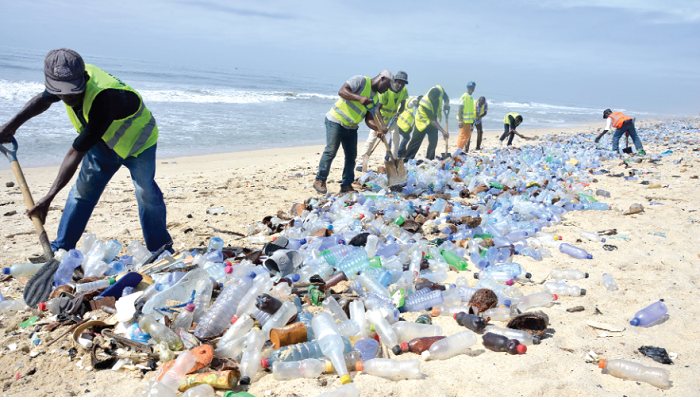
Ghana can generate GH¢83 billion annually from recycled waste — UNDP
Ghana can generate GH¢83 billion annually through recycled waste. The country is estimated to generate 30,000 tonnes of solid waste daily and 86 per cent of the waste are recoverable through recycling.
This was made known at a multi-stakeholder Waste Resource Platform meeting in Accra organised by the United Nations Development Programme (UNDP).
Advertisement
The meeting, which brought together stakeholders from the waste management sector, government institutions and agencies, as well as development partners, was aimed at initiating a platform for collaboration to tackle the waste menace in the country.
It is being funded under a Country Investment Facility of the UNDP to promote innovation and the use of technology in tackling waste.
Initiative
Under the initiative, a national competition will be launched to provide technical and financial support to some projects that will test innovative waste recovery solutions.
According to the UNDP Country Director, Ms Gita Welch, “as with many urbanising economies, Ghana's municipalities face significant challenges with solid waste management”.
She underscored the fact that the UN Sustainable Development Goals (SDGs) could not be met unless waste management and recovery were given priorities.
 Ms Gita Welch (left), the Country Director of UNDP, in a conversation with Mr Louis Kuukpen (2nd left), the Assistant Country Director of UNDP and Ms Heather Troutman, a Consultant with UNDP after the opening ceremony of the stakeholders meeting.
Ms Gita Welch (left), the Country Director of UNDP, in a conversation with Mr Louis Kuukpen (2nd left), the Assistant Country Director of UNDP and Ms Heather Troutman, a Consultant with UNDP after the opening ceremony of the stakeholders meeting.
“It is reported globally that there are more than seven billion of us, and we are producing waste every day. A staggering half of that waste is not collected, treated or safely disposed of, and it’s causing a global waste crisis.
“It is important that we do not view waste only as an environmental or sanitation problem, but also as a resource that presents opportunities for economic development, job creation and technological innovation,” Ms Welch added.
According to her, what was needed in Ghana was “a system to promote the creation of synergies and collaborations that can bring implementation to scale and make meaningful impact”.
She further indicated that partnerships among key stakeholders along the waste management chain in the country were either weak or non-existent.
Ms Welch, therefore, said the initiative was aimed at addressing such challenges by creating a digital and one-stop shop solutions platform that would connect all stakeholders along the waste management value chain, while providing tools to fill the data and information gaps in the system.
“In the medium and long term, it is envisaged that this digital platform will provide ready and consistent data that will serve as a basis for economic and policy decisions on waste management and resource recovery,” she added.
Challenges
A consultant with the UNDP, Ms Heather Troutman, mentioned one of the challenges identified to be causing Ghana’s waste situation as the under-development of domestic market for waste plastics, which she said had saturated the country.
Others are financial constraints, attitudes and behaviour of people, enforcement of laws and policies and the lack of data in the area of waste management.
She, however, said the current initiative would help improve on information flow, facilitate the development of new business models for waste recovery and re-use, strengthen coordination and collaboration to address waste challenges and also support timely and accurate data collection for strategic planning and investment.



